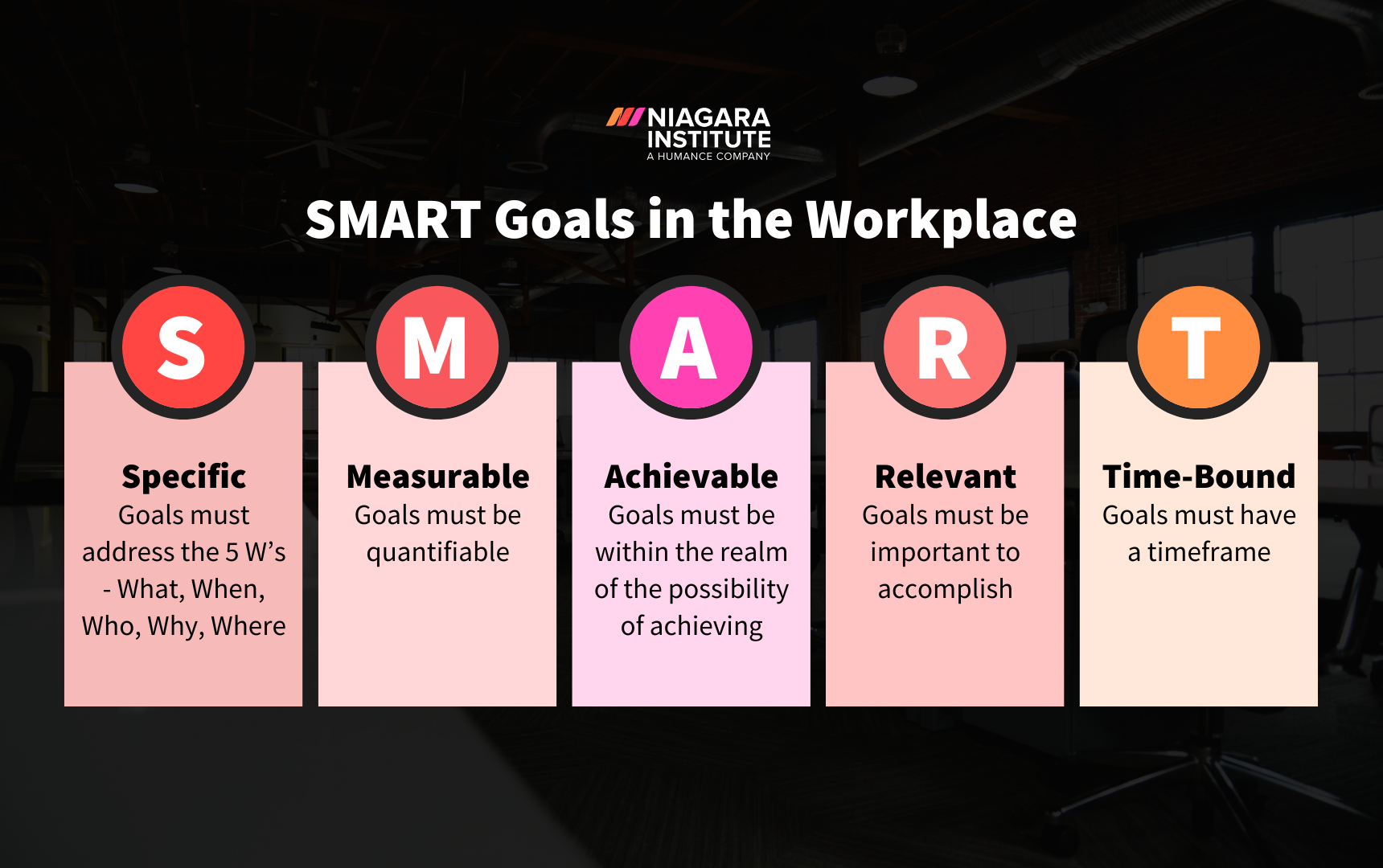7 min read
Why Is It Important to Set Realistic Goals?
Professional goals should give you something to work towards and look forward to. They provide a sense of purpose, ownership, and pride when they're...
.png)
Setting goals in the workplace is never as straightforward as we think it will be or would like it to be. This is especially true for those in the workplace who have never had to set professional goals for themselves before.
Without a defined or intentional process, it’s all too easy to fall into the trap of setting goals that are too broad, impossible to measure the success of, unattainable, or unrealistic. In other words, you run the risk of setting yourself up for failure.
Using the SMART goals framework to avoid common pitfalls when setting goals can be immensely helpful. Not only does this framework give the goal-setting process much-needed structure, but it helps ensure you’re setting challenging yet feasible goals.
In the following article, you’ll not only receive the only SMART goals template you’ll need from here on out but also a recap of the SMART acronym and a list of questions to ask yourself. Let’s begin.
In the workplace, SMART goals are a framework employees, leaders, and teams can use to set goals and objectives. SMART goals stands for Specific, Measurable, Achievable, Relevant, and Time-bound.
The idea was originally published by George Doran, Arthur Miller, and James Cunningham in the 1981 article, “There's a S.M.A.R.T. way to write management goals and objectives.” Since then, the idea has become one of the most popular goal-setting techniques and has been adopted by individuals and organizations in both the private and public sectors worldwide.

There’s no question that the SMART goals template provided below will help you get started, but you might need more of a prompt than that. In that case, here is a list of questions to ask yourself as you work your way through each part of the SMART acronym.
In the SMART goals acronym, the S stands for Specific. The last thing you want your goal to be is ambiguous and vague, so before you do anything else, outline what you intend to accomplish. To do this, you should address the 5 W’s (What, When, Who, Why, Where). You can do so by asking yourself the following questions.
In the SMART goals acronym, the M stands for Measurable. Your goal should be quantifiable, which means you should be able to measure or count it. For example, “I want to make more sales” is not a measurable goal, but “I want to make 20% more sales this year” is. Here are a few questions to ask yourself to ensure your goal is measurable.
In the SMART goals acronym, the A stands for Achievable. While your goal should be a challenge to achieve, it should also be within the realm of possibility, given the time, resources, training, and support you have available. After all, there’s no sense in setting a goal that you’re never going to achieve, as that will only put you at risk of disappointment and demotivation. Ask yourself the following questions to ensure you’re setting realistic and achievable goals.
In the SMART goals acronym, the R stands for Relevant. Any goal you set in the workplace should not only align with the broader, strategic goals of your team and organization but also with your own career aspirations and values. In other words, the goals you set should matter and be important in the grander scheme of things. Ask yourself the following questions to ensure the relevance of your goals.
In the SMART goals acronym, the T stands for Time-bound. During this final step, you need to define a timeframe for your goal. If you don’t and opt to leave it open-ended, you may end up continually pushing it off for more important or urgent tasks until, finally, you lose track of it entirely. To ensure your goal is time-bound, ask yourself the following questions.
 Now that you know the five parts that make up a SMART goal and have a list of questions to refer to, you’re ready to start writing your goals using this printable SMART Goals Template. Upon downloading it, you will receive both a fully editable Google Docs version of the SMART Goals Template and a printable PDF version as well, so you can choose the option that works best for you.
Now that you know the five parts that make up a SMART goal and have a list of questions to refer to, you’re ready to start writing your goals using this printable SMART Goals Template. Upon downloading it, you will receive both a fully editable Google Docs version of the SMART Goals Template and a printable PDF version as well, so you can choose the option that works best for you.
.png)
7 min read
Professional goals should give you something to work towards and look forward to. They provide a sense of purpose, ownership, and pride when they're...
.png)
9 min read
Did you know that employees whose leaders are effective coaches are 20% more likely to stay at their company, 40% more engaged with their job, and...
.png)
6 min read
How many times have you wished there were more hours in the day to get everything done? Unfortunately, if you feel this way at work, you’re not...